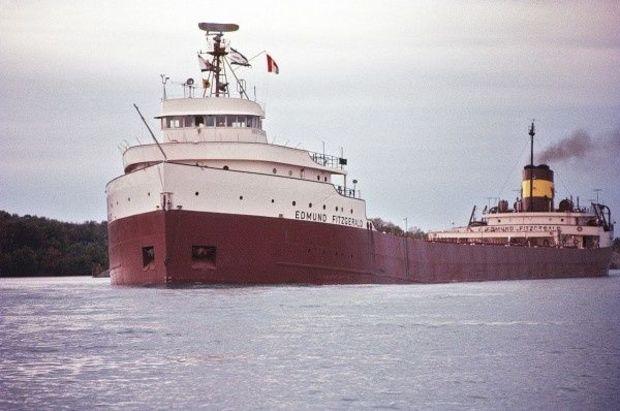Everyone loves a good sea ballad, and few are as noteworthy as Gordon Lightfoot’s epic ballad “The Wreck of the Edmund Fitzgerald.” The song was written about the Lake Superior sinking of an iron ore carrier, taking with her all 29 crew members on November 10, 1975. To celebrate the anniversary of the ballad, we’re taking a closer look at the story behind the song.

Lightfoot wrote “The Wreck” after reading a November 24, 1975 Newsweek article entitled “The Cruelest Month,” detailing Lake Superior’s history for shipwrecks during the month of November. “On Nov. 11, 1913, a ferocious storm sank 12 ships, killing 254 people; on the same date in 1930 another one tore five ships apart, and 67 people drowned.
On the anniversary of those wrecks, rescue crafts were still hovering over the latest scene of the Great Lakes’ cruelty: the 729-foot ore ship Edmund Fitzgerald and its 29-man crew had vanished without a trace in a nighttime torrent of splashing winds and waves on Lake Superior.” Lightfoot explained his interest in writing the song years later in a 2014 interview. “The Edmund Fitzgerald really seemed to go unnoticed at that time. Anything I’d seen in the newspapers or magazines were very short, brief articles, and I felt I would like to expand on the story of the sinking of the ship itself.”
That ‘story’ was that the Fitzgerald fought 30-foot waves and hurricane-force winds for hours under the guidance of Capt. Ernest McSorley, a 44-year veteran of the Great Lakes. Just 15 miles from the safety of Whitefish Bay, McSorley radioed a following ore ship that the Fitzgerald was taking on some water through two broken ventilator covers but was not in any immediate danger. The other captain later stated that he lost sight of the Fitzgerald’s running lights, and then realized she had vanished from the radar screen.
Lightfoot initially stated that crew error had been to blame for the sinking, singing “At seven p.m. a main hatchway caved in.” But after further investigation, it was noted that the $7 million ship most likely got caught with its bow on one wave and its stern on the following wave, and the weight of 26,000 tons of iron ore cargo pushed the ship to crack in half, sinking to the bottom in a matter of seconds. In 2010, Lightfoot formally changed the line to “At seven PM, it grew dark, it was then he (the cook) said ‘Fellas, it’s been good to know ya’.” “The Wreck” made its way to Number Two on the Billboard Pop Charts in 1976, and was nominated for a Grammy. Unfortunately, Lightfoot lost to Barry Manilow’s song “I Write the Songs.”